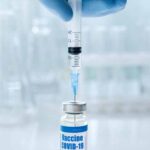Although a less central focus than it was three years ago, rheumatologists must still consider the prevention and management of SARS-CoV-2 in their patients. The following update shares ongoing considerations related to the COVID-19 pandemic.
Outcomes
At the beginning of the pandemic, it was unclear whether patients with rheumatic disease would be at higher risk of infection and poor disease outcomes than individuals in the general population, either through direct disease effects or indirectly via immunosuppressive therapies. Eventually, we learned the clinical severity of breakthrough infections and their overall rates were similar when comparing most rheumatic disease patients and healthy controls, with some important caveats.1
“It’s stratified based on the type of immune suppression, with B cell-depleting agents—potent immunosuppressives—like mycophenolate and high-dose prednisone really driving the highest risk for severe COVID and a greater risk of blunted immune responses,” says Alfred H. Kim, MD, PhD, assistant professor in the Division of Rheumatology at Washington University School of Medicine in St. Louis.
We’ve learned that specific early-onset responses to SARS-CoV-2 infection, such as interferons, are key in preventing severe disease. “The earlier antibodies are generated after infection, the more protection is observed in terms of preventing this progression to severe COVID-19,” says Dr. Kim. “The more potent the immunosuppressive, the greater the chance that an optimal response to the infection or vaccine won’t occur.”
Kevin Winthrop, MD, MPH, a professor of infectious diseases and professor of public health and preventive medicine in the Division of Infectious Diseases at Oregon Health and Science University, Portland, notes, “I think that for the rheumatologist, the most challenging group is people who have been on prolonged B cell-depletion [therapy]. Some are likely poorly protected because they didn’t mount vaccine responses that are adequate or long lasting.”
Vaccination
The data we’ve gained studying the immune response and outcomes in patients with rheumatic disease has informed ACR recommendations on the timing of SARS-CoV-2 vaccines and boosters and holding certain medications. Using these data and other preexisting data, particularly from H. influenzae, the ACR’s COVID-19 Vaccine Clinical Guidance Task Force provided recommendations, updated several times.2
Although certain medications, such as hydroxychloroquine, can be taken as usual before and after vaccination, others, such as Janus kinase (JAK) inhibitors, may need to be held one to two weeks after every vaccine or booster dose. For certain therapies, with less clear evidence, the task force did not come to a consensus about interrupting medications.2 Such recommendations are likely to continue to evolve.




